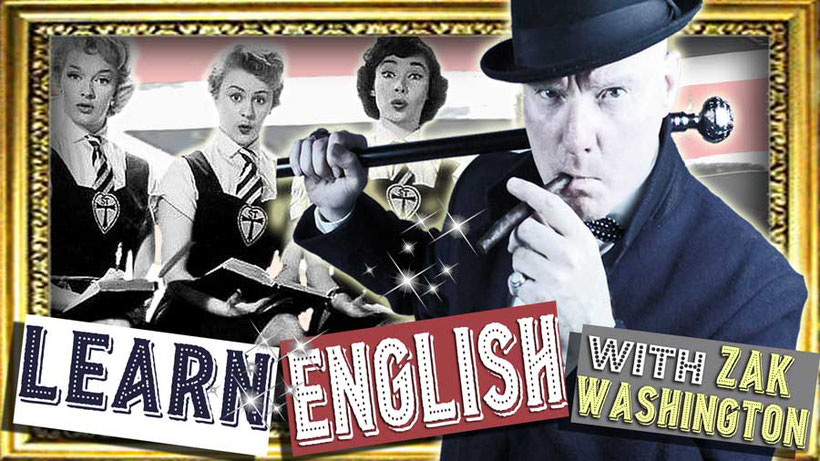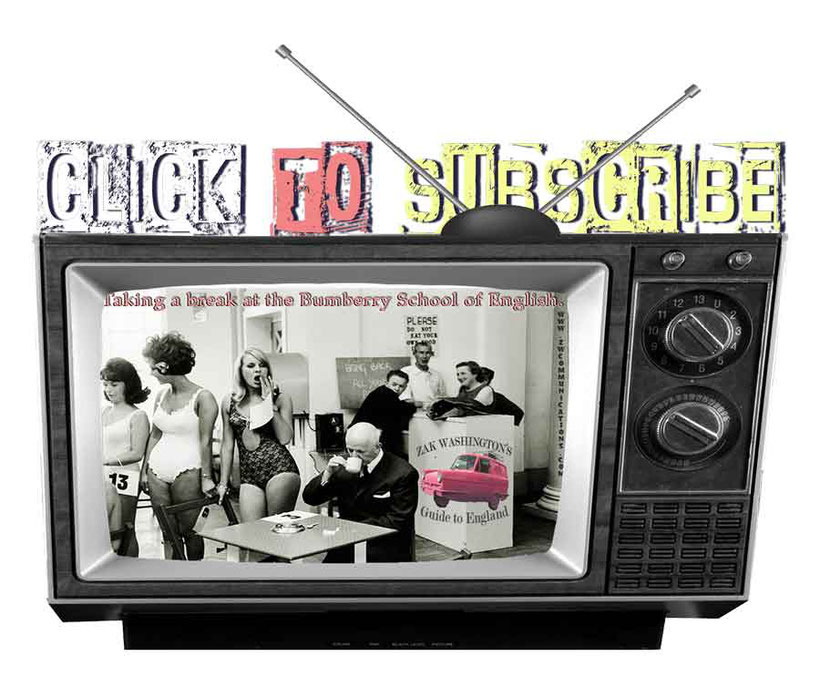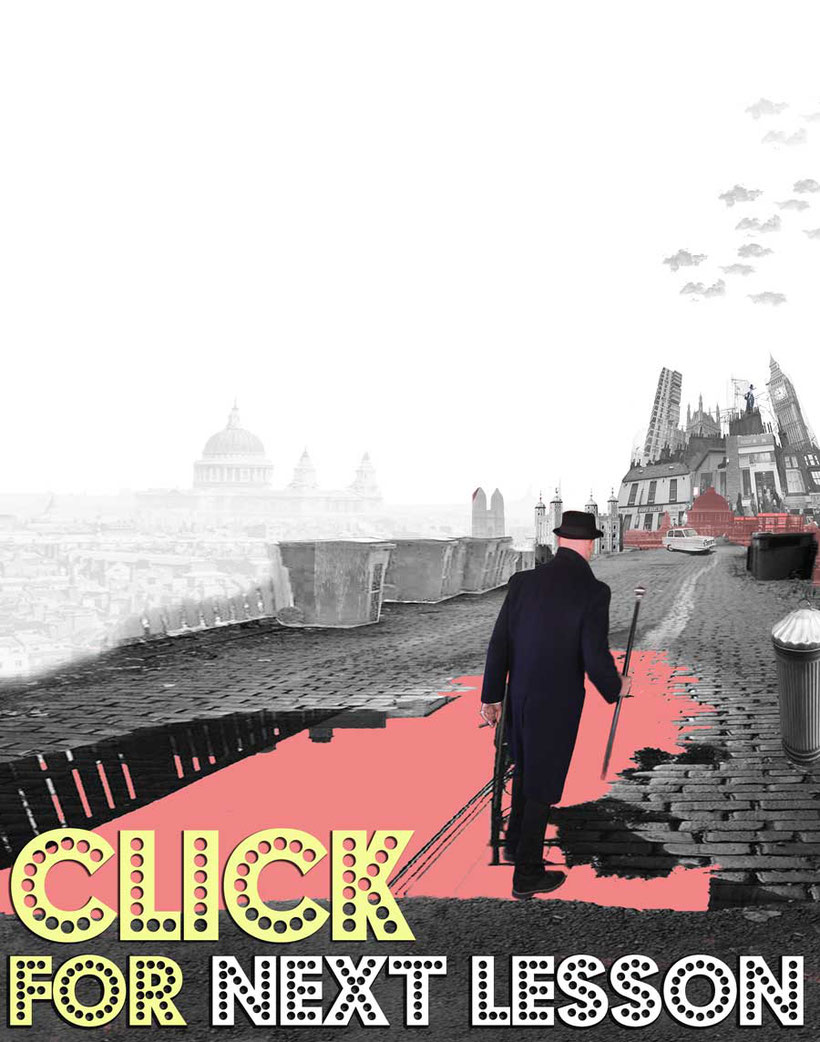LEARN real ENGLISH LANGUAGE & CULTURE - LESSON 7

Complete FREE non-profit, non-corporate and non-statist EFL course

In LESSON 7 we learn English vocabulary for multi-part verbs (phrasal verbs).
We will explain step-by-step the structure and grammar of phrasal verbs.
After we will explain some slang and street language terms.
Finally students will practice with communication activities, quizzes and games.
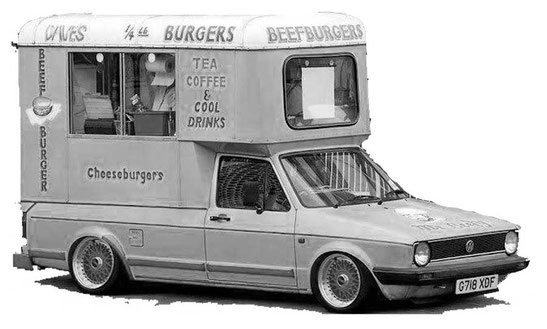
Vintage Volkswagen burger van with custom wheels... you go first.

Zak Washington, the corrupt English teacher, is too lazy to work at the language school, so he is taking his group of students to visit a ‘cultural’ place of interest. Today we are going to…..
THE GREASY SPOON CAFÉ.
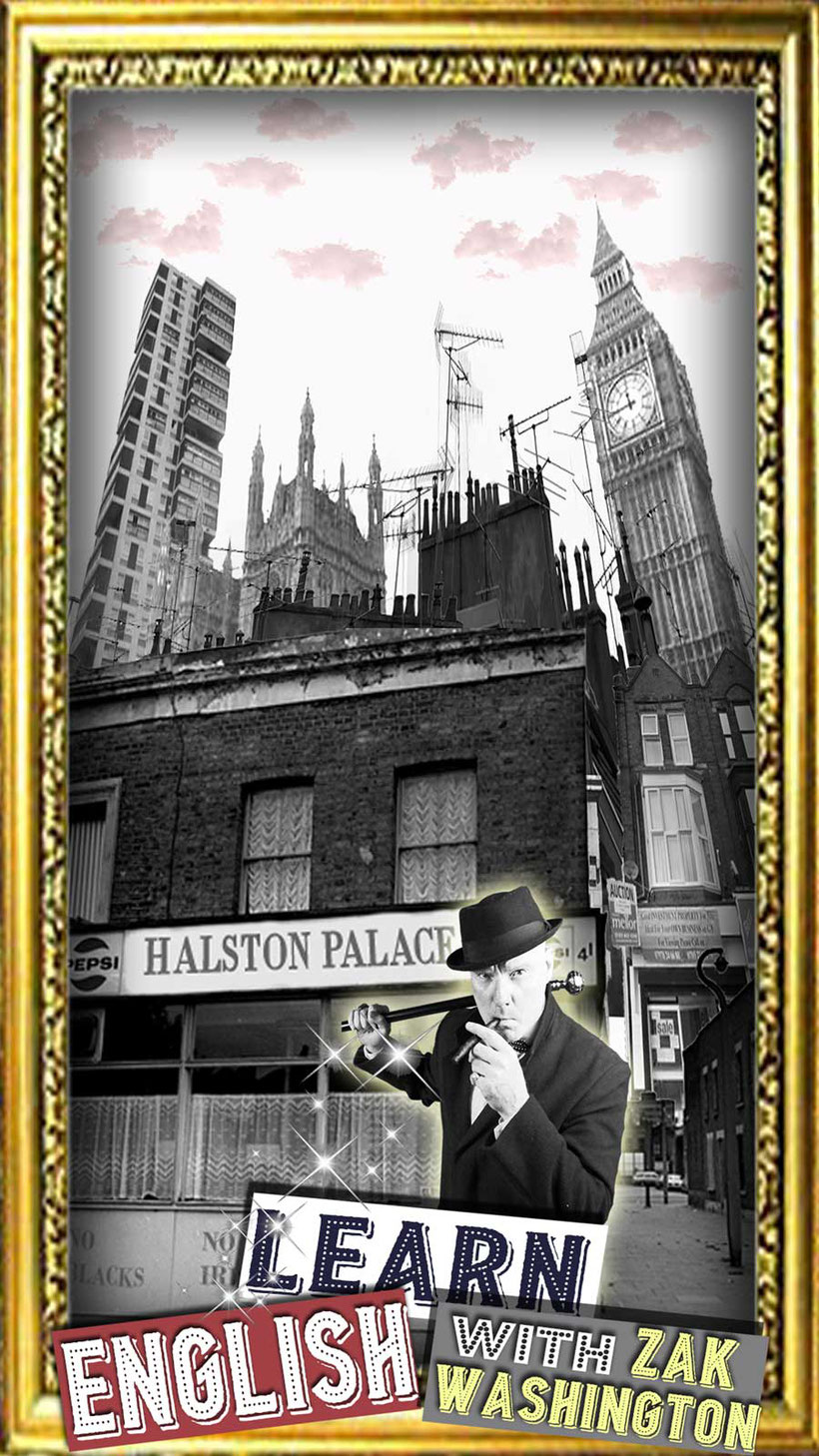
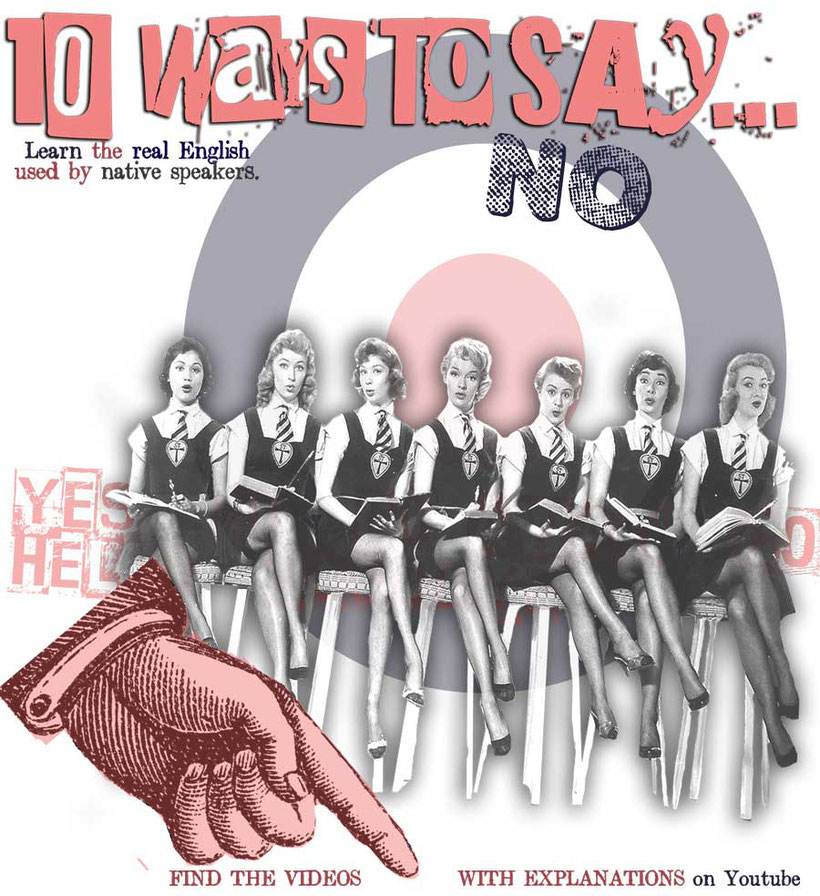

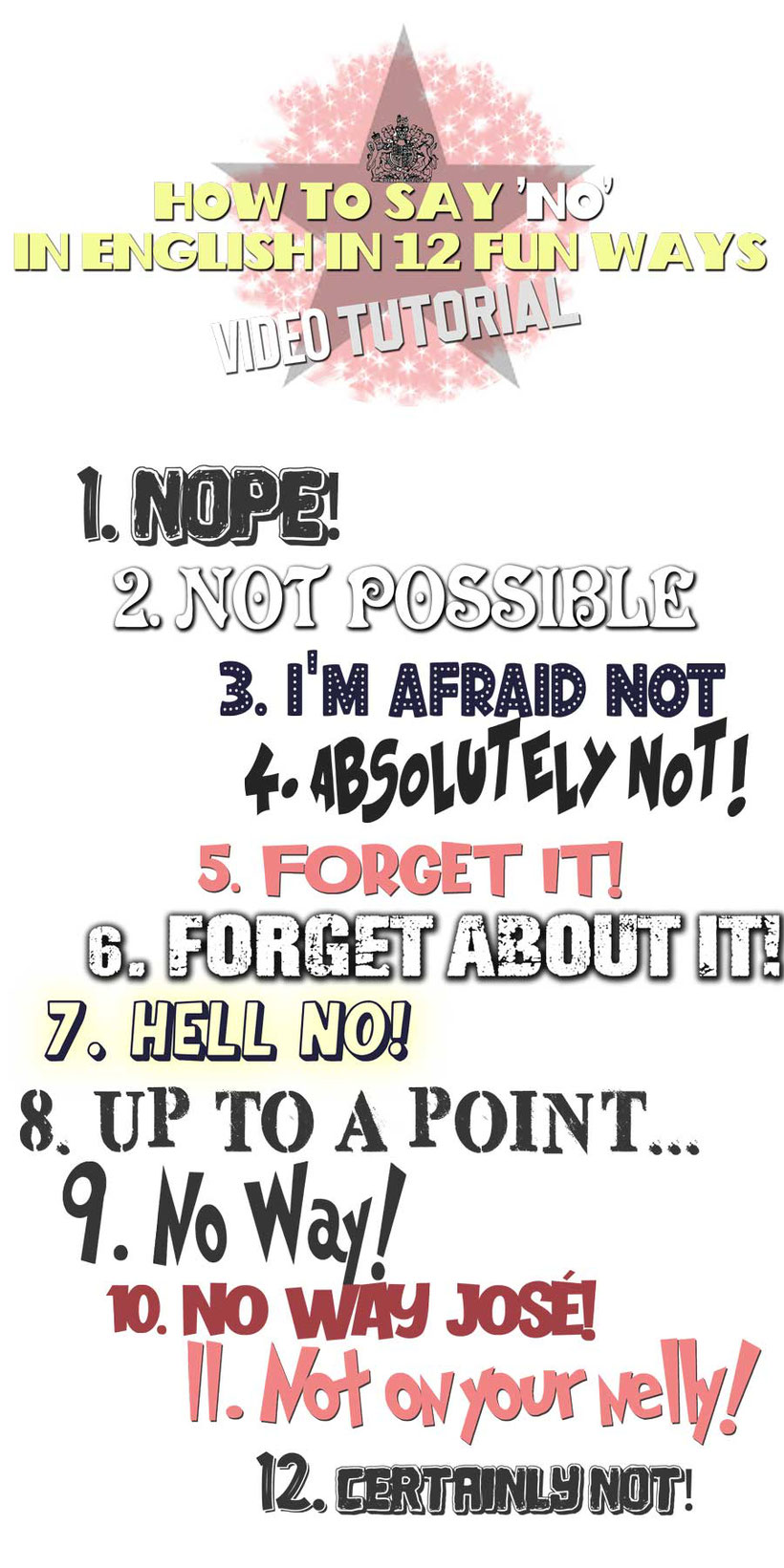

LISTENING EXERCISE
CHAPTER 7 SONG 1
ZAK WASHINGTON: A VERY GOOD MORNING TO YOU STUDENTS!!!!!
STUDENTS: (Waking up) Why are you shouting at us?
ZAK WASHINGTON: Because it’s ten o’clock in the morning. Because it’s time to get out of bed and study phrasal verbs! Get up! Get dressed! Get busy! (SP: pónte a trabajar IT: datti da fare)
FRANÇOIS: But we only went to sleep two hours ago! If you had picked up someone last night like Giovanni, you’d want to stay in bed all day like we do!
ANJA: He was so drunk that he brought a 'lady' dressed as a man back here.
AHMET: He hasn’t even realised yet! (SP: no se ha enterado todavía IT: non si ha reso conto ancora)
(A shout coming from Giovanni’s room.)
GIOVANNI: Aaagghhh!!!
STUDENTS: He’s realised now!
GIOVANNI: (entering the room.) Oh my God! There’s a man in my bed dressed as a woman!
MARIA: We have been in London for ages, and all we have done is drink a lot and visit stupid places. When are we going to do something cultural?
ZAK WASHINGTON: Today! We are going to the Halston Palace to have lunch with Lady Forbsworth.
SOPHIE: Oh great! A real lady! A palace! Fantastic!
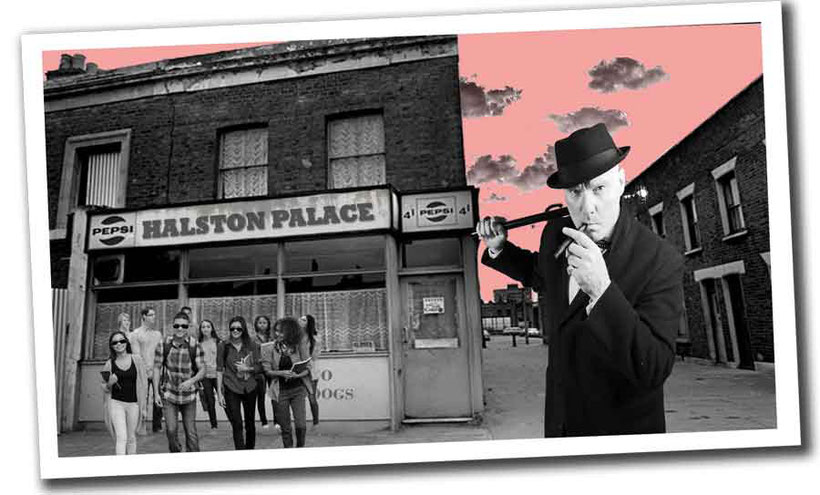
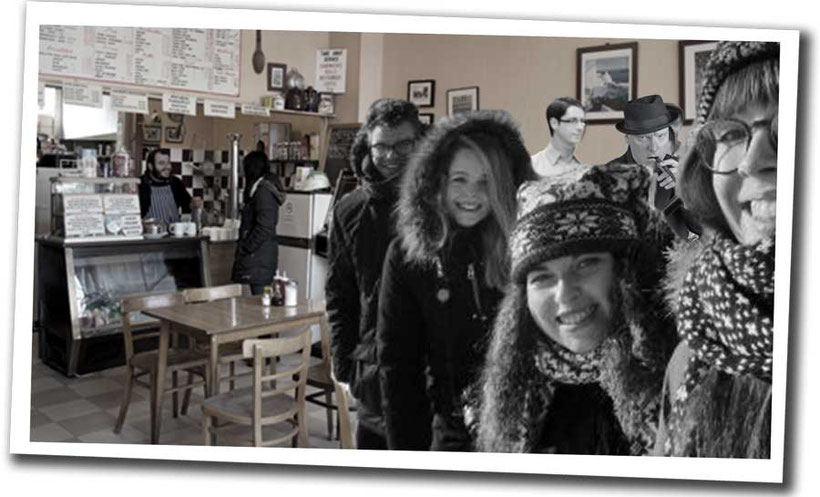
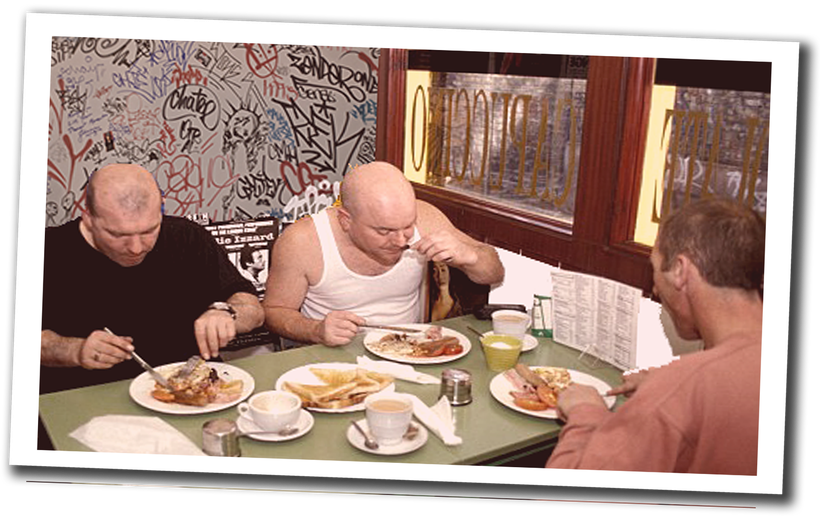
ZAK WASHINGTON: Here we are! One of the great London sights (SP: monumentos IT: attrazioni). The Halston Palace!
FRANÇOIS: I can’t see a palace anywhere!
MARIA & FRANÇOIS: It’s not a palace! It looks like a typical, dirty, smelly, workmen’s café (SP: cafetería, cantina IT: mensa, bar) !
MARIA: It smells of body odour (SP: olor corporal IT: odore de corpo) and grease.
MARIA & FRANÇOIS: It’s full of working men (SP: obreros IT: operari)… and building site labourers (SP: albañiles IT: muratori). They are all reading newspapers called ‘The Sun’ or ‘The Mirror’… and talking about a ‘page three girl’.
FRANÇOIS: I thought that we were going to eat with Lady Forbsworth!
ZAK WASHINGTON: We are! There’s Lady Forbsworth sat in the corner.
SOPHIE (in a state of shock.): But she’s got blue hair, a plastic mini-skirt and a ring (SP: anillo, IT anello) through her nose! She doesn’t look like an aristocratic lady
AHMET: Wait! I know her!
SOPHIE: ...she looks more like...a prostitute!
AHMET: She’s a stripper! (SP: estriptista IT: spogliarellista) She works in the Royal Revue Club. Lady Forbsworth is only a stage-name. She’s not a real lady. The English love to see an ‘aristocrat’ strip off! (SP: desnudarse IT: spogliarsi)

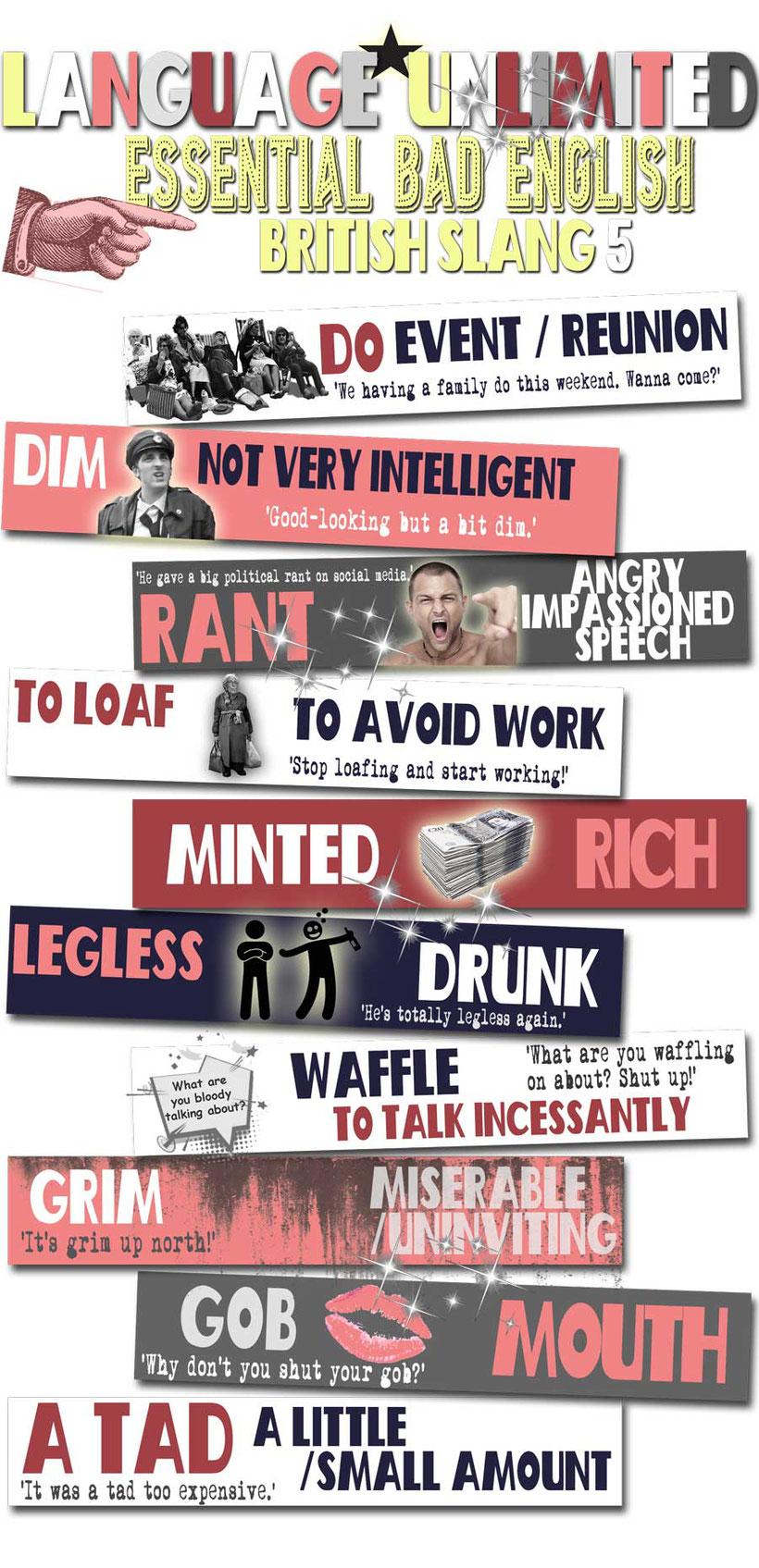

Match the following verbs with the correct meaning.
1. Get over
2. Get into
3. Get on
4. Get at
5. Get away
6. Get to
7. Get off
8. Get around to
9. Get up to
10.Get on with
a. to annoy, to irritate, to bother
b. to recover from, to recuperate
c. to have a good relationship with
d. to have a short holiday or break
e. to exit a form of public transport
f. to enjoy, to like
g. to have been doing something recently
h. to eventually do something that needs to be done
i. to arrive at
k. to board public transport

Get into pairs. Rephrase the following words in italics, using only verbs containing the word ‘GET’. Use the verbs from above, or just the word ‘GET’ alone. Pay special attention to whether (SP: se IT: si ) the phrasal verbs are separable or inseparable.
ZAK WASHINGTON: (drunk in the disco) Hey Maria! What have you been doing recently? Can I fetch you a drink? I was thinking that we could take a little holiday together. Just you and I. We could board a bus, and exit the bus in the country. When we arrive there, we could visit somewhere pretty... It has taken me a long time to say what I have wanted to say.... how can I put this? You know you are very special Maria. We are good friends and have a great relationship, don’t we? In the future things will improve even more. It’s a long time since I felt like this about anybody. It took me a long time to recover from my last relationship, and I haven’t wanted to become involved in anything serious since then. But now I’m really starting to enjoy being with you. Do you understand what I’m saying? Oh Maria! I must tell you! I love you so much!
MARIA: (shouting) I’m sorry. I didn’t catch that. It’s too noisy in this nightclub. I can’t hear a word you’re saying. Could you repeat that?
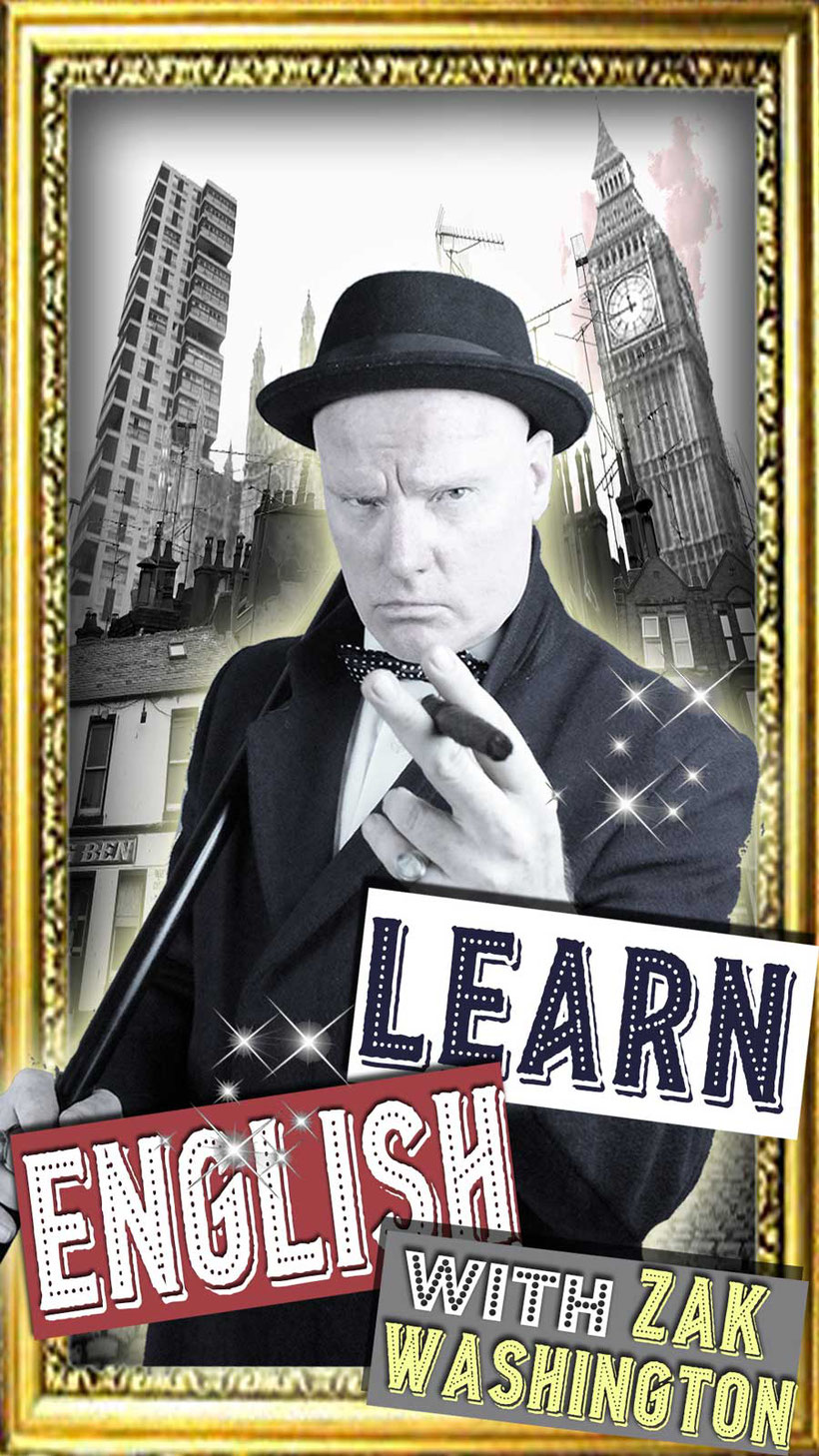

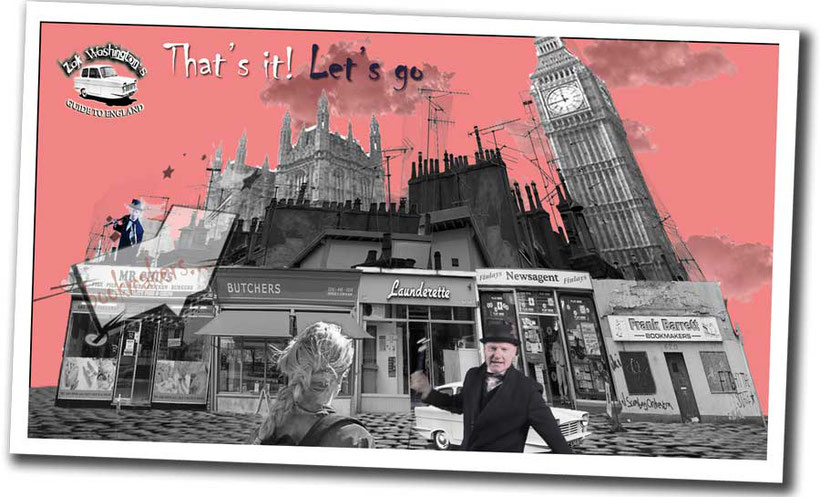
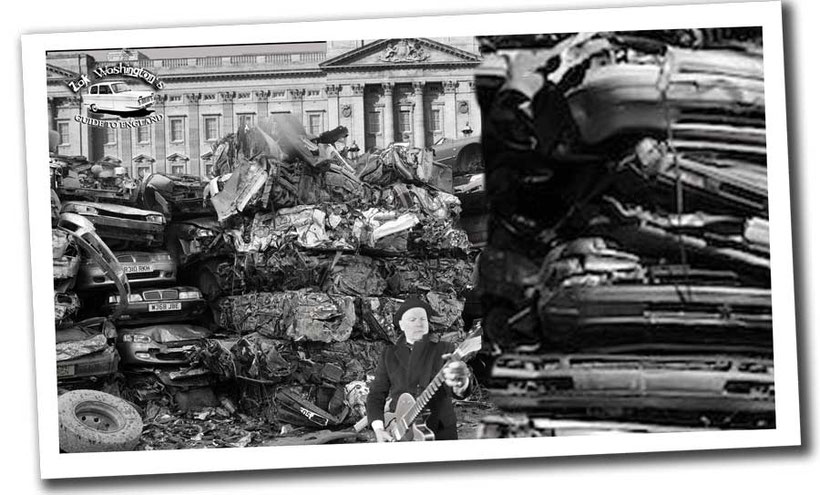
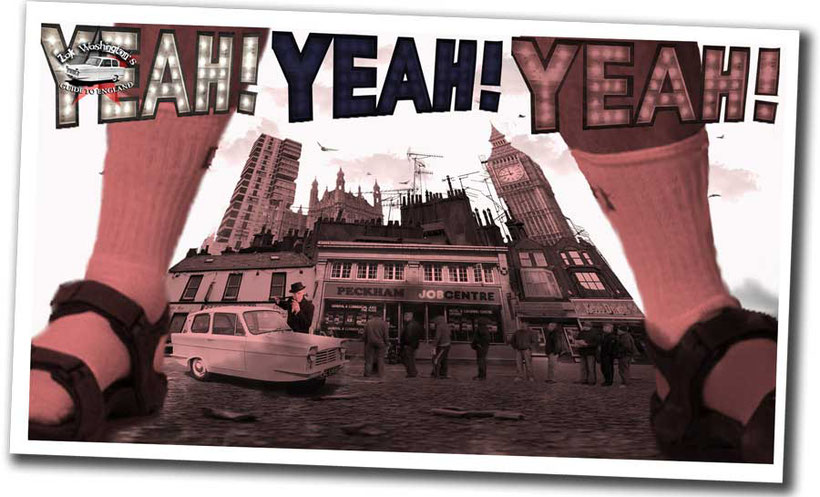
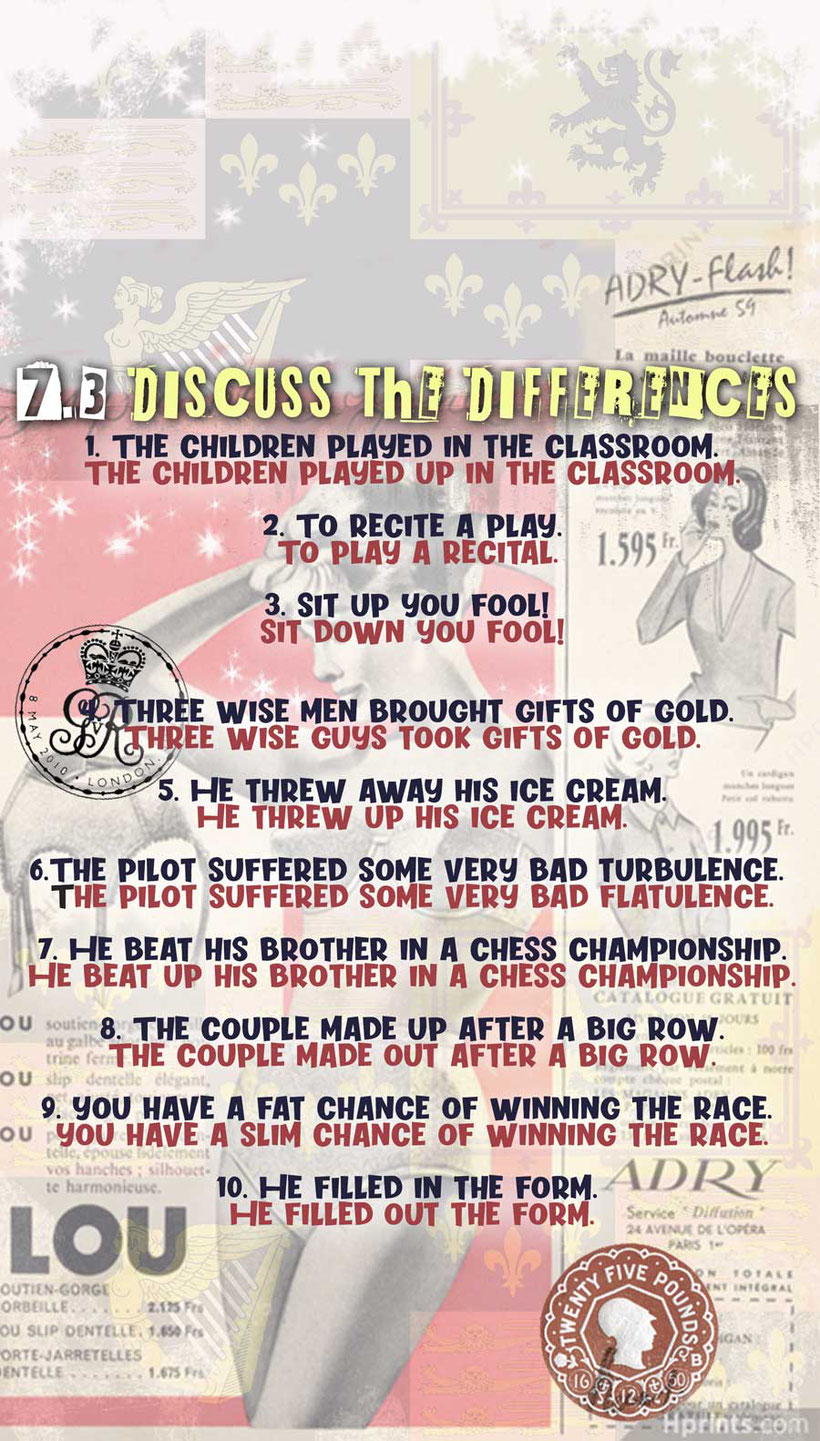
STUDENT PRACTICE ACTIVITY PHRASAL VERBS

(In the café.) ZAK WASHINGTON: Hey! Look who has just come in. It’s my old friend Mr. Chris Off.
ANJA: What a strange name! His name sounds like a phrasal verb.
ZAK WASHINGTON: It’s only a nickname. Let’s invite him over. Chris! What have you been up to this morning?
CHRIS OFF: ‘I’ve been very tied up this morning. I woke up, got up, went out, set off, drove off, broke down, fixed up the motor, set off again, pulled up, dropped off the kids, then waved them off. I went back home, rang up my friend Bill who turned up to help out in doing up the flat. We knocked down a wall and put in some new windows, but then got tired out, fed up and started fooling around. The wife told us off. Bill told her to shut up, then she told him to clear off. We sorted out the rubbish, cleared up and got rid of it. Then cleared off, got in the car, drove off, pulled up at the drive-in cash point, dropped Bill off and then came down to the car park and turned up here. Now I’m worn out and want to tuck into some food!
SOPHIE: Teacher I don’t understand a word he’s talking about!
Get into pairs and rewrite the text using ‘normal’ Latinate verbs. What exactly was Chris doing this morning? When you have finished compare notes with the other students and try to arrive at a group conclusion.
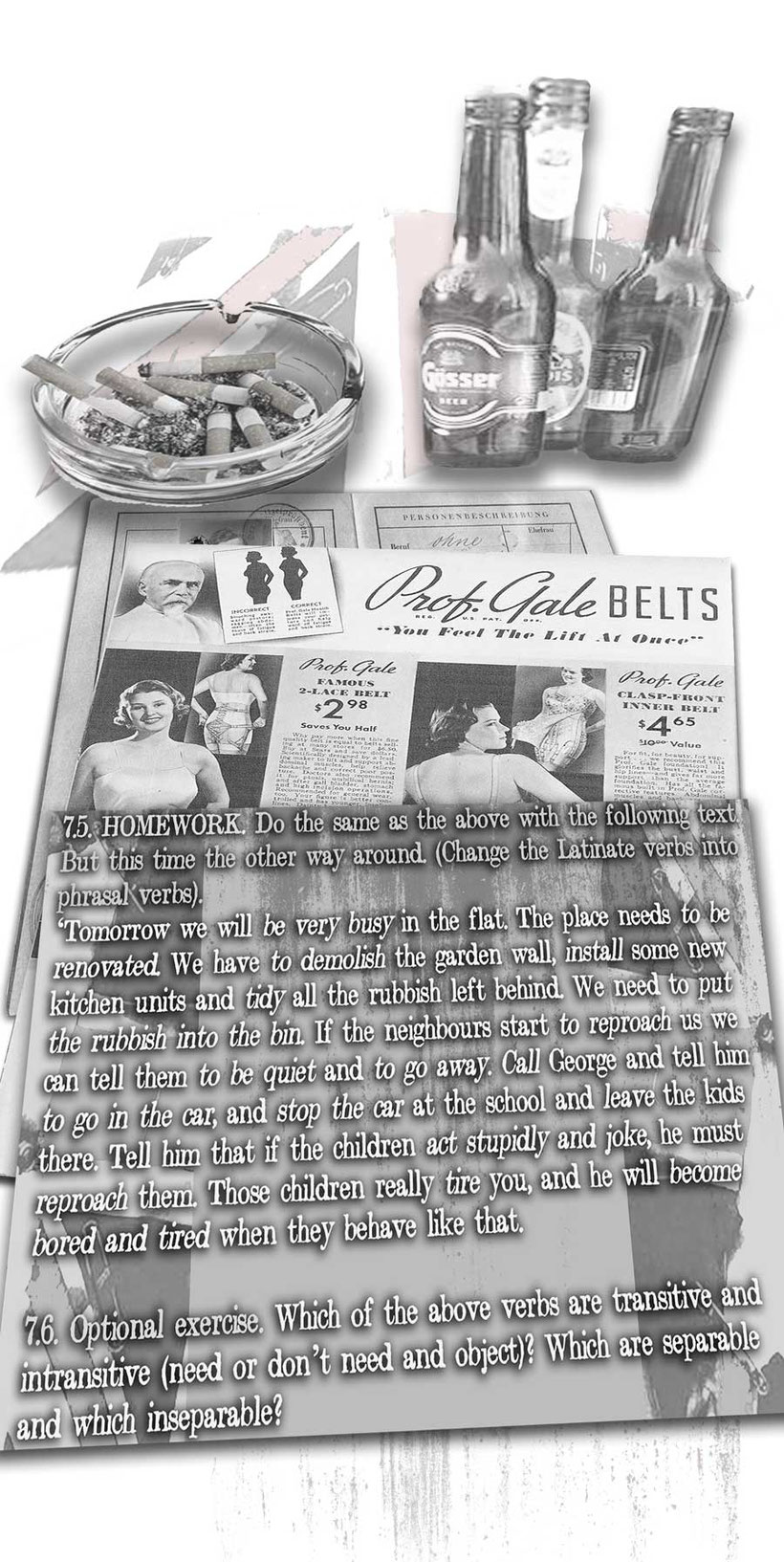
7.5. HOMEWORK. Do the same as the above with the following text. But this time the other way around. Change the Latinate verbs into phrasal verbs.
‘Tomorrow we will be very busy in the flat. The place needs to be renovated. We have to demolish the garden wall, install some new kitchen units and tidy all the rubbish left behind. We need to put the rubbish into the bin. If the neighbours start to reproach us we can tell them to be quiet and to go away. Call George and tell him to go in the car, and stop the car at the school and leave the kids there. Tell him that if the children act stupidly and joke, he must reproach them. Those children really tire you, and he will become bored and tired when they behave like that.
7.6. Optional exercise. Which of the above verbs are transitive and intransitive (need or don’t need and object)? Which are separable and which inseparable?
VOCABULARY EXERCISE PHRASAL VERBS

What would you say in the following situations? Use one of these phrasal verbs that you have learnt.
1. ‘Taxi driver! ______ _____ (stop) here, in front of the supermarket.’
2. ‘I’ve been so _____ _____ (to be busy) lately at work, that I’m too _______ _________ in the evening to cook and do the washing.’
3. ‘If I get home late again tonight, my wife will _______ me _________. Then she’ll throw plates against the wall again.’
4. ‘Hey Dave! Why are you waiting for the bus! I’ve got my car. __________________ and I’ll give you a ride (SP: paseo IT: passaggio).’
5. ‘Hey big boy! Next time you want a good time _______ (phone) me up. Here’s my number. Or if you’re in town, you can come and _______ _______ (visit) me. Here’s my address. You know I’m the hottest babe in town!’
6. ‘They got into a fight! Ted ___________ Derek _____________ (hit, push, strike), and he just stayed there on the floor and didn’t get up for five minutes. It was horrific!’
7. ‘That girlfriend of mine is always annoying [1] me.’ ‘Why don’t you _____ ______ _____ (reject, throw away, replace) her and get another one? There are five billion people in the world and half of them are women!’
8. ‘I’m completely _______ - ______. I really need to sleep. I’m going to bed. Goodnight!’
9. ‘What time did you _______ __________? I didn’t see you arrive.
10. ‘I’m ________-_________ __________ (tired and bored) phrasal verbs. Can’t we study something else?’
(In the Halson Palace Café)
ZAK WASHINGTON: Now, François, last night in the police cell we were talking about food. What were you saying?
FRANÇOIS: Yes, I was saying that Mediterranean food is healthier than the British diet. I can’t understand why people eat that stuff. Actually I’m very hungry now, and I have a hangover (SP: resaca IT: postumi della sbornia) too.
ZAK WASHINGTON: Come on then! Let’s order one of those delicious Greek salads that we were talking about!
EVERYBODY: (shouting together in unison.) ‘Urrgghh!! No!!!! Let’s go to the café and get an enormous greasy breakfast, with loads (SP: un montón de IT: un sacco de) of cholesterol and fried everything.
ZAK WASHINGTON: That’s it! You foreign students really are learning quickly! Let’s order. I’ll have chips, two fried eggs, fried tomato, fried mushroom, fried bread! Fried everything! Chris?
CHRIS OFF: I can’t make my mind up. I might splash out and get them to cook me up a big fry-up. Pass over the ketchup! 7.8 Explain the phrasal verbs
ZAK WASHINGTON: And you Giovanni? What do you want?
GIOVANNI: I want my wallet (SP: cartera IT: portafoglio ) back. The pickpocket has stolen my money and my identity card.
ANJA: Well, you should go to the police station again.
AHMET: Tell the police to look for someone who wears lipstick, stilettos, a mini-skirt, has facial hair and answers to the name of Dave.
GIOVANNI: OK, I’m going over to the police station. I’ll see you guys at the squat (SP: casa okupa IT: casa occupato) this afternoon. Cheers!
7.8 Why does Giovanni say ‘Cheers’? On what occasions can we use this word?
[1] To annoy (SP: molestar IT: dar fastidio) to irritate, to make a person angry or uncomfortable, to upset. ‘Stop playing that really annoying CD. The singer’s voice annoys me so much.’


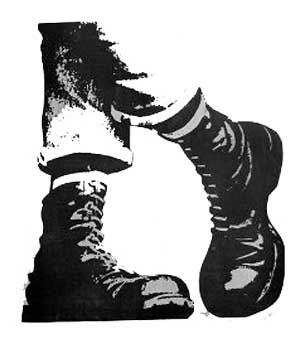
'Hello. I'm Dave the Hooligan. Welcome to London. Now f*** off back to your own country.'
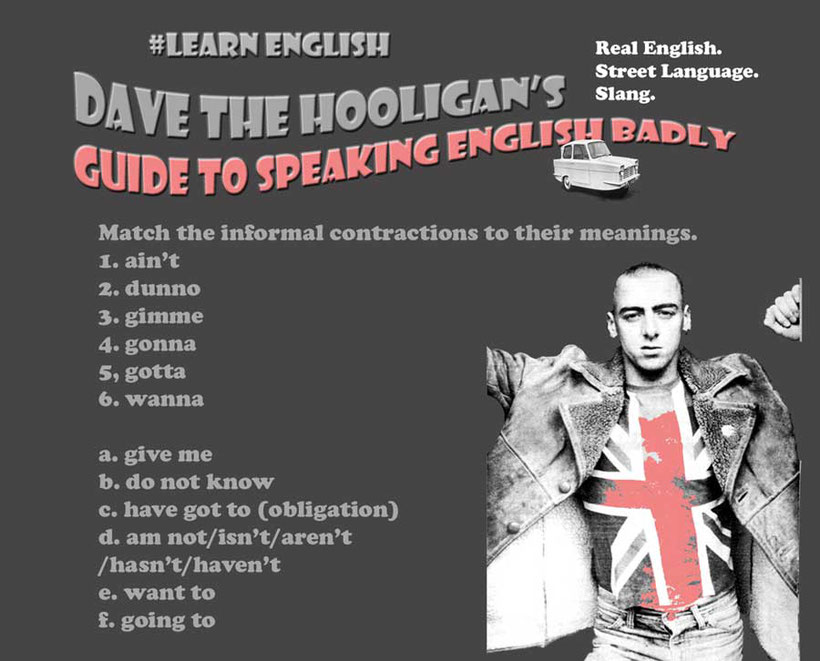
VOCABULARY COMMON CONTRACTIONS In English we use a lot of contractions, especially in the street, in rock songs and in more informal types of language.
7.10. VOCABULARY CONTRACTIONS
Occasionally you’ll hear people put together combinations of the above.
‘Gimme, gimme, gimme a man after midnight.’
‘What do you wanna do today?’
‘I dunno what you wanna gimme, but I ain’t gonna wanna eat it.’
What do these sentences mean? Can you put together any other combinations?

VOCABULARY ‘AIN’T’
This word needs special attention. Normally dictionaries call it ‘slang’[1] and grammar books don’t mention it, but it is actually one of the most commonly used forms of less formal language, popular sayings (SP: dichos, refranes IT: detti), and songs. Also, it is almost completely international.
It can be used in place of almost any auxiliary verb; ‘to be’, ‘to have’ and less commonly ‘to do’. It isn’t recommended that you try and use ‘ain’t’ instead of these verbs, in fact, it isn’t recommended that you use it at all. As many people will tell you, ‘ain’t’ isn’t really correct English. But you do need to understand it.
7.11 Dave the Hooligan is at the table next to you in the café, and is talking to his mate[2]. Like many people he overuses the word ‘ain’t’. Try and figure out which auxiliary each ‘ain’t’ represents:
‘It ain’t nobody’s business, what I do, as long as I ain’t hurting nobody. I ain’t gonna listen to my stupid neighbour telling me what I should be doing. He ain’t nobody special. And I ain’t ever told him what to do with his life. I said to him that he ain’t got no right to tell my wife that we ain’t looking after the garden properly. He ain’t ever cleaned the path that goes between our houses. You ain’t gonna believe what he said to me....’
Notice also that ‘ain’t’ is usually used with double negatives. Grammar books will tell you that this is not possible, but in more complicated styles of English, such as in song lyrics and colloquial language, the double negative is frequently used, snobs consider it non-standard.
DAVE THE HOOLIGAN'S GUIDE TO SPEAKING ENGLISH BADLY
7.12. VOCABULARY ‘AIN’T’.
Here are some more expressions using ‘ain’t’. Explain them too.
It ain’t half hot mum. (Famous situation comedy show on British TV.)
It ain’t nobody’s business. (Blues song and common cliché.)
If it ain’t broken, don’t fix it. (Popular saying.)
If you ain’t a farmer, you ain’t shit! (Rude tattoo on the arm of an American farmer.)
‘What an ill-natured woman his mother is, an't she?’ (Quote from Nancy Steele, a character in Jane Austin’s novel 'Sense and Sensibility'.)
‘You ain’t nothing but a hound dog!’ (Line from Lieber and Stoller’s Hound Dog sung by Elvis Presley.)
There ain’t no such thing as a free lunch. (Popular saying.)
‘It ain’t what you don’t know that gets you into trouble; it’s what you know for sure that just ain’t so. (Mark Twain) Difficult one this!
GLOSSARY
[1] Slang (noun) (SP: jerga IT: gergo) (adj.) very informal, colloquial language, usually from the street.
[2] Mate (SP: colega, tio, amigo IT: compagno, amico) The basic meaning in colloquial English of Britain and Australian is friend. It is usually masculine. The American equivalent is buddy. These two words can be used directly to a person known or unknown. ‘Hey, mate! You’ve left your cigarettes on the table.’ ‘Oh, thanks buddy.’ These are typically masculine phrases. Girls do use them although they tend to do so more in the third person. ‘I like to go out with my mates on a Saturday night’ could be a man or a woman talking about male or female friends.
Bloke is different, because it usually is used to refer to an anonymous third person and is always masculine. ‘A bloke walks into a pub and says to the barman...’ ‘Who’s that strange bloke over there?’
Chap and fellow are similar to bloke as they can only be used to talk about a male third person. They are a bit more formal, and are now a little out of fashion. All three of these words are very British. ‘He is a really lovely chap who always buys the drinks!’
Lads is a slightly macho word to refer directly or indirectly to groups of men. This would be the most common way to speak to other members of a team. ‘Come on lads! Let’s give this team a good thrashing!’ The same situation in Britain with an all women team would require ‘Come on girls!’ or ‘Come on gals!’ ‘Girls’ of course, is used in this situation to talk about females of any age. Americans in either of these situations would use guys, which traditionally meant men only, but now can be used for any group of people. A common Americanism is y’all which is a contraction of ‘you all’ or ‘all of you’. But you are in danger of sounding like a Texan cowboy if you overuse this. For you foreign girls, you might find it more difficult to directly address an unknown female on her own, as no single word exists in universal usage, probably because women tend to not start calling out to unknown people in the way that men do.
SPEAKING PRACTICE ROLE-PLAY
ENGLISH LANGUAGE SPEAKING ACTIVITY
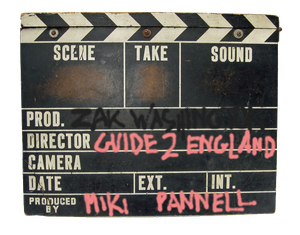
ROLE PLAY
You are gonna be Dave the Hooligan and his friends, some of these typical British workmen in the Halston Palace Café, who do nothing all day except sit in the café, smoking, reading the papers and drinking tea. You ain’t got much to talk about except television, football, betting, women and drinking. You ain’t very intelligent. You’ve gotta get in pairs and are gonna prepare typical discussions that workmen have whilst they eat their egg’n’chips. You ain’t allowed to use anything except the contractions mentioned above. Here are some typical themes for discussion:
Where you’re gonna wanna go on holiday.
What you’re gonna do on holiday.
Who you’re gonna go on holiday with.
What you’ve gotta do this weekend.
What you’re gonna do with all the cash you win on the lottery.
ENGLISH LANGUAGE GRAMMAR AND VOCABULARY EXERCISE

Match the following statements with the appropriate endings.
|
He spent all day looking after my sister... |
...I hope that he found her. |
|
He spent all day looking into my sister.... |
...what a skilful surgeon he is! |
|
He spent all day looking at my sister.... |
..if she wasn’t so short, he wouldn’t have seen the game. |
|
He spent all day looking for my sister.... |
...I really think he’s a nice baby sitter. |
|
He spent all day looking over my sister... |
...I think he’s in love with her. |
|
He spent all day looking forward to my sister. |
...why does he have to ignore her? |
|
He spent all day looking in my sister... |
...it’s an investigation that will take months. |
|
He spent all day looking through my sister. |
...he couldn’t wait to see her. They make a great pair. |

